The motorcycle air filter plays a critical role in maintaining the efficiency and performance of your bike’s engine. By filtering the air that enters the engine, the air filter ensures that only clean, dirt-free air is mixed with fuel for combustion. This process significantly influences fuel efficiency, engine lifespan, and overall performance. Understanding how motorcycle air filters work, their types, and the importance of maintenance can help riders make informed decisions. This article will explore the functions of air filters, the different types available, the impact on performance, and guidelines for proper maintenance.
The Function of the Motorcycle Air Filter
Basic Principle of Operation
The primary function of a motorcycle air filter is simple yet vital: it cleans the air entering the engine. Dirt, dust, and other airborne particles can cause damage to the engine components. The air filter traps these contaminants, preventing them from reaching sensitive parts of the engine, such as the combustion chamber. As a result, the air-fuel mixture remains optimal, which is essential for efficient combustion.
Contribution to Engine Performance
By keeping the intake air clean, the motorcycle air filter contributes significantly to engine performance. Clean air allows for better fuel atomization, ensuring that the combustion process is efficient. If the air filter becomes clogged or dirty, airflow will be restricted, leading to poor engine performance. In extreme cases, a neglected air filter can cause the engine to misfire or stall as it struggles to draw in sufficient clean air.
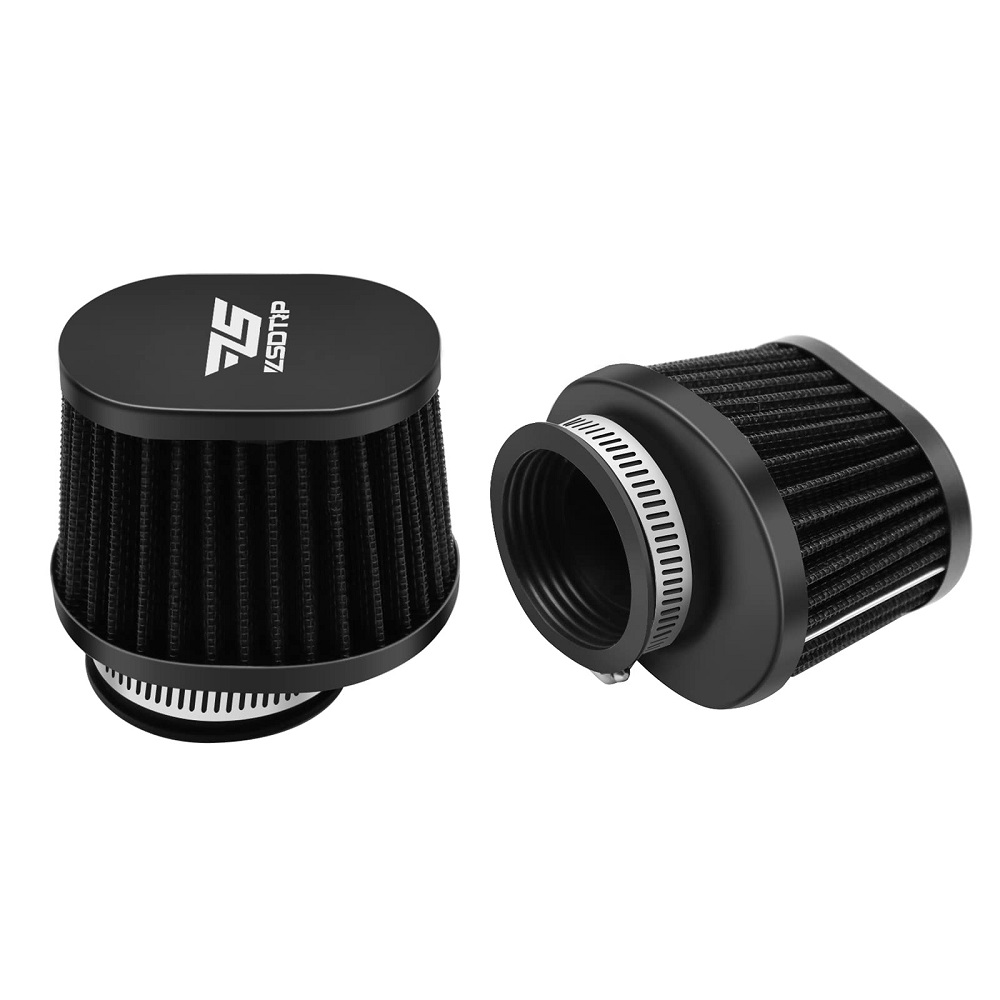
Impact on Fuel Efficiency
The relationship between the air filter and fuel efficiency cannot be overlooked. A clean air filter enables the engine to operate at its peak, improving the combustion process. When the engine runs efficiently, it requires less fuel to achieve the desired power output. Conversely, a dirty or clogged filter can lead to increased fuel consumption as the engine works harder to maintain performance. For riders seeking better mileage, maintaining a clean air filter is essential.
Types of Motorcycle Air Filters
Foam Filters
Foam air filters are popular among motorcycle enthusiasts for their ease of maintenance and excellent filtration capabilities. Made from layers of foam, these filters trap larger particles and allow for good airflow. Foam filters are generally washable and reusable, making them a cost-effective choice for riders. Many riders especially favor them for off-road bikes because they can withstand significant exposure to dirt and debris while maintaining performance.
Paper Filters
Paper air filters are the most common type of air filter found in motorcycles. Constructed from pleated paper elements, these filters effectively trap dirt and provide adequate airflow. Paper filters are generally less expensive than foam filters and are designed for single use. Once they become dirty, they must be replaced. Motorcycle manufacturers often recommend paper filters for everyday use due to their reliability and ease of replacement.
Cotton Filters
Cotton air filters are another option available to motorcycle riders. Typically washable and reusable, these filters consist of cotton fibers layered between sticky, oil-coated surfaces. This design captures dirt particles while allowing sufficient airflow. Cotton filters may be more expensive than paper options, but they offer long-term savings due to their reusability. Many riders prefer cotton filters due to their ability to provide excellent filtration without compromising performance.
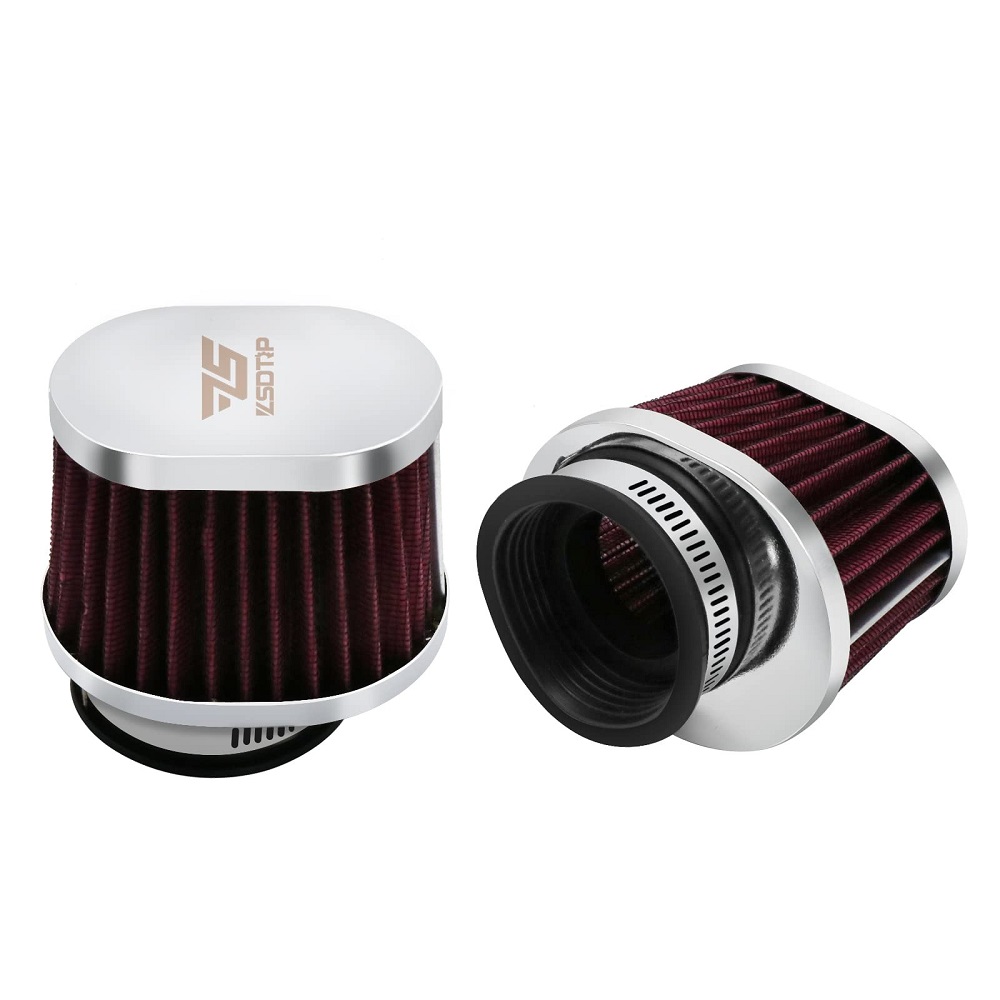
Recognizing the Signs of a Clogged Air Filter
Decreased Engine Performance
One of the primary indicators of a clogged air filter is a noticeable decrease in engine performance. Riders may find that their motorcycle lacks power during acceleration or struggles to maintain speed. The engine may feel sluggish or unresponsive, signaling the need to check the air filter. A reduction in power suggests that the airflow is restricted, resulting in inefficient combustion.
Poor Fuel Efficiency
If riders notice increased fuel consumption without any significant changes in riding habits, a clogged air filter could be to blame. When the air filter is dirty, the engine compensates by using more fuel to achieve the desired performance levels. As a result, riders might frequently visit fuel stations, leading to frustration and increased costs. Regular checks of the air filter can help prevent this issue.
Unusual Noises or Engine Stalling
Another sign of air filter problems is unusual engine noises. If the motorcycle begins to backfire, sputter, or stall, it could indicate that the engine is not receiving enough clean air. This situation can lead to further complications, as prolonged issues can result in more severe engine damage. Riders should investigate strange noises immediately to identify the cause and prevent potential breakdowns.
Proper Maintenance of Air Filters
Regular Inspections
To ensure optimal engine performance and efficiency, regular inspections of the motorcycle air filter are essential. Riders should check the filter at regular intervals, especially before long trips or during routine maintenance. Inspecting the air filter for dirt, debris, and damage at least once a month is a good practice. A clean filter not only prolongs engine life but also enhances overall riding experience.
Cleaning Procedures
The cleaning procedure will vary based on the type of air filter used. For foam filters, riders can wash them with soap and water, making sure to thoroughly rinse and dry them before reinstalling. Riders should not clean paper filters, as doing so could damage the filter’s structure. Instead, riders should inspect paper filters regularly for signs of dirt and replace them when necessary. You can wash cotton filters according to the manufacturer’s instructions, and it’s advisable to use specialized cleaning kits for the best results.
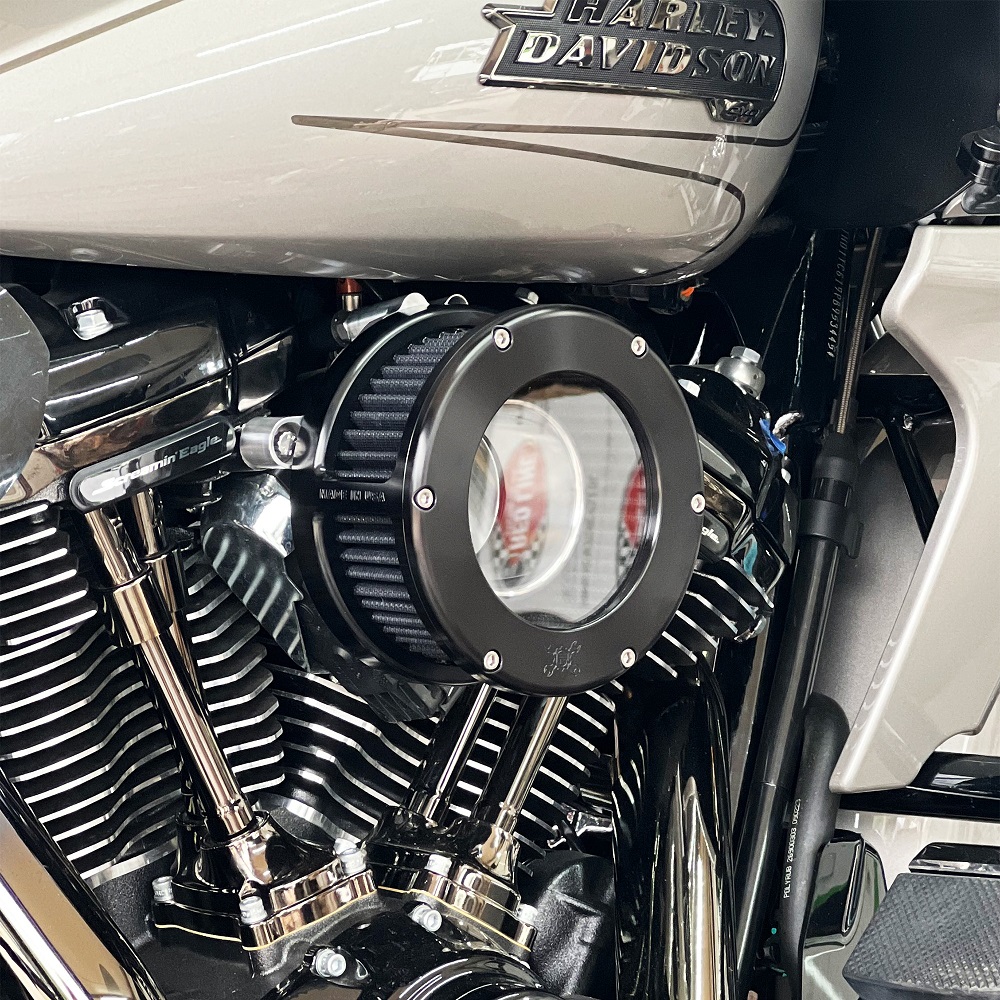
Replacement Guidelines
Understanding when to replace an air filter is crucial for maintaining engine efficiency. As a general rule, you should replace paper filters every 10,000 to 15,000 miles, depending on your riding conditions. You can typically keep foam filters longer if you maintain them well, but you should still check them frequently. Riders frequently navigating harsh environments, like off-road routes, may need to replace or clean their filters more often. Keeping a maintenance log can help track air filter condition and replacement needs, ensuring rides remain smooth and effective.
The Role of Air Filters in Performance Modifications
Enhancing Engine Performance
For riders looking to enhance their motorcycle’s performance through modifications, upgrading the air filter is a great starting point. High-performance air filters can improve airflow, allowing for better combustion and increased horsepower. Riders who customize their engines should consider replacing the stock air filter with a performance one that suits their specific setup. This modification can lead to noticeable changes in throttle response and overall power delivery.
Complementing Other Modifications
When making modifications to the motorcycle, it is essential to consider the air filter as part of the overall intake and exhaust system. Upgrading the exhaust alongside the air filter can optimize the performance gains achieved in modifying the engine. Enhancing the flow of air into the engine creates a balance that maximizes the motorcycle’s overall efficiency. Riders should work with professionals to ensure that all modifications complement each other for optimal performance.
Impact on Warranty Considerations
While upgrading air filters can enhance performance, riders should also be aware of warranty implications. Some manufacturers may void warranties if aftermarket parts are added to the motorcycle. Before making significant modifications, it is essential to check the warranty policy and consult with the manufacturer. Keeping track of OEM parts and modifications can prevent potential issues when claiming warranty services.
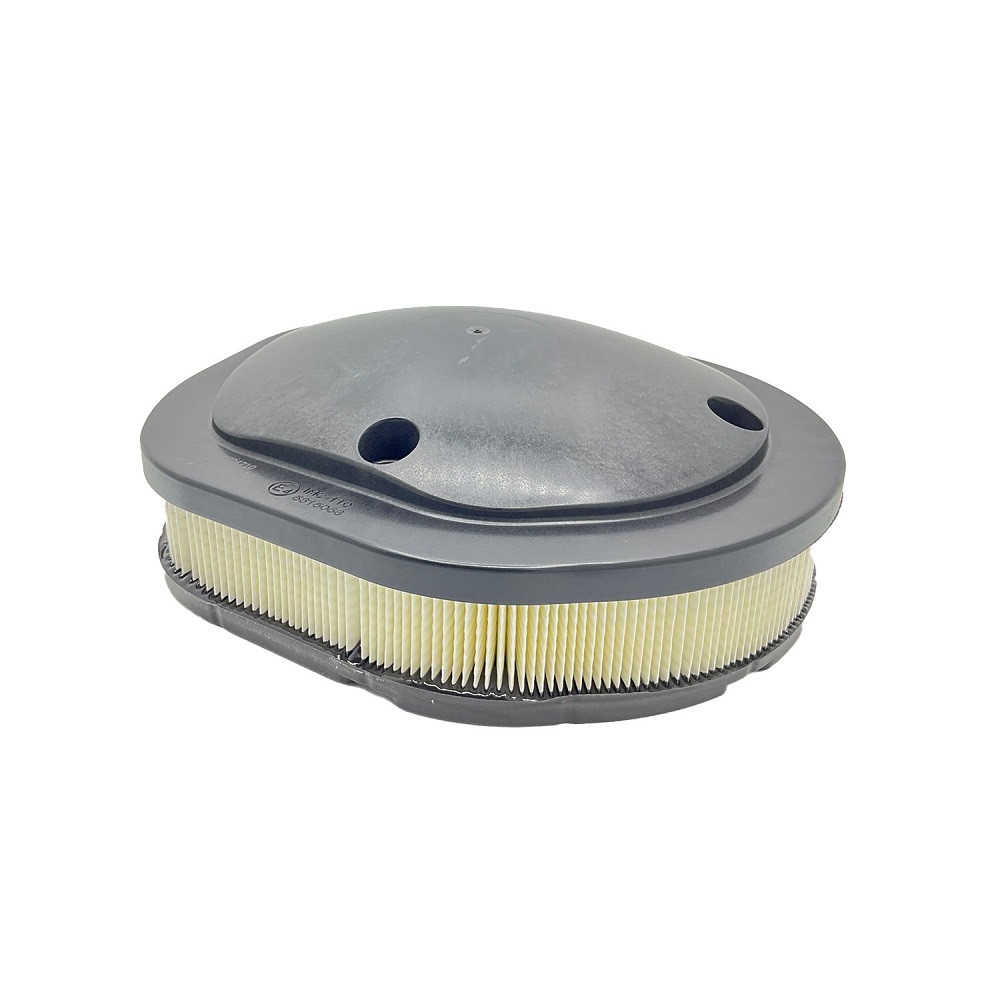
The Environmental Impact of Air Filters
Reducing Emissions
One of the often-overlooked benefits of maintaining a clean motorcycle air filter is its impact on emissions. Dirty air filters prevent the engine from operating efficiently, leading to incomplete fuel combustion. As a result, more unburned fuel is emitted into the atmosphere, contributing to pollution. By maintaining an optimal air filter, riders can reduce their motorcycle’s environmental footprint and contribute to cleaner air.
Use of Eco-Friendly Filters
As concerns about the environment grow, manufacturers now offer eco-friendly air filters made from sustainable materials. These filters can be reused or recycled, reducing waste and resource consumption. Riders looking to minimize their impact can consider eco-friendly options when purchasing air filters. Supporting manufacturers that prioritize sustainability not only benefits the planet but also promotes responsible consumer habits.
Recycling Old Filters
When it’s time to replace an air filter, proper disposal is essential. Many air filters, particularly paper filters, cannot be recycled, so you should dispose of them appropriately. Some manufacturers offer recycling programs where you can send back used filters for proper disposal. Riders should check local recycling regulations to ensure they dispose of filters responsibly, helping to mitigate environmental harm.
FAQ:
1. What is the role of an air filter in a motorcycle?
Answer: The air filter in a motorcycle is responsible for filtering out dirt, dust, and debris from the air before it enters the engine. This ensures that the engine receives clean air, which is essential for optimal combustion and overall engine efficiency, leading to better performance and fuel economy.
2. How often should I replace my motorcycle air filter?
Answer: The frequency of air filter replacement depends on riding conditions and manufacturer recommendations. Generally, it is advisable to check the air filter every 6,000 to 12,000 miles, but riders in dusty or off-road environments may need to replace it more frequently. Always consult the motorcycle’s owner manual for specific guidance.
3. What are the signs that my motorcycle air filter needs to be replaced?
Answer: You may need to replace your motorcycle air filter if you notice signs such as decreased engine performance, poor fuel economy, unusual engine noises, and a loss of throttle response. If you notice excessive dust or dirt buildup on the filter, it’s also an indicator that it needs cleaning or replacement.
4. Can I clean my motorcycle air filter instead of replacing it?
Answer: Yes, many motorcycle air filters, especially foam and certain paper types, can be cleaned and reused. Use an appropriate cleaner and follow the manufacturer’s instructions for cleaning and re-oiling (if applicable). However, if you find that the filter is damaged or excessively worn, you should replace it to ensure proper engine function.
5. How does a high-performance air filter benefit my motorcycle?
Answer: A high-performance air filter can improve airflow to the engine, leading to enhanced combustion efficiency, increased horsepower, and better throttle response. Additionally, these filters often provide better filtration compared to standard filters, ensuring cleaner air intake and potentially extending engine life. However, it’s essential to ensure compatibility with your specific motorcycle model.
Conclusion: The Importance of Motorcycle Air Filters
In summary, the motorcycle air filter plays a vital role in engine efficiency, performance, and overall riding experience. Understanding its function, types, maintenance, and impact on performance modifications allows riders to make informed choices. A clean air filter enhances fuel efficiency, reduces emissions, and prolongs engine life.
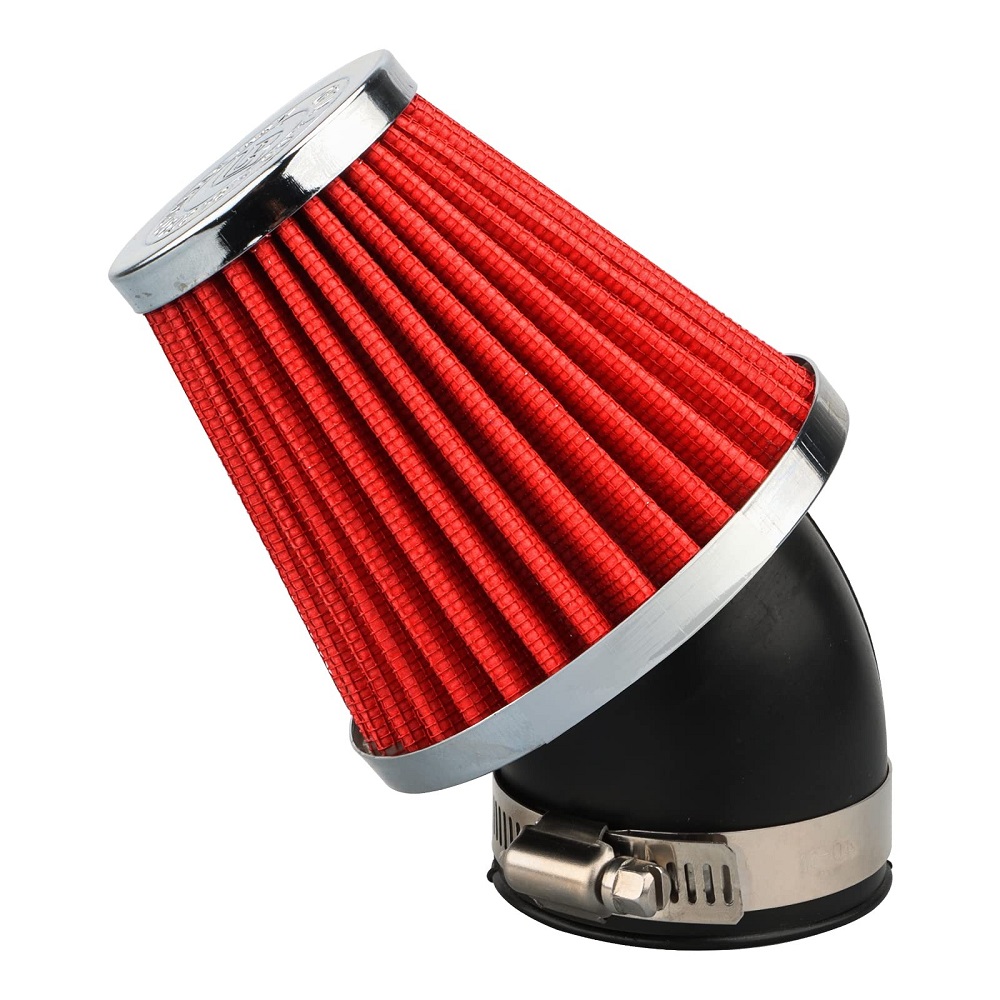
Prioritize Maintenance
As with any motorcycle component, prioritizing regular maintenance of the air filter is essential. Riders should commit to inspecting, cleaning, and replacing their air filters as needed. Staying proactive in this aspect not only improves performance but also contributes to safer rides and a more enjoyable ownership experience.
Optimize Performance
While many people often see the air filter as a minor component, you should not underestimate its impact on engine performance. Riders looking to enhance their motorcycle’s capabilities can benefit from educated choices regarding air filters. By selecting high-quality or performance-enhancing filters, motorcyclists can unlock even more from their machines, creating a thrilling ride on every adventure.
Environmental Responsibility
Finally, embracing the importance of motorcycle air filter extends beyond performance and efficiency; it also reflects a commitment to environmental responsibility. By exploring the best motorcycle air filters for engine performance, reducing emissions, using eco-friendly options, and properly disposing of filters, riders can enjoy their passion while being mindful of their impact. As the motorcycle community continues to grow, fostering sustainable practices will ensure that future generations can share this love for riding.
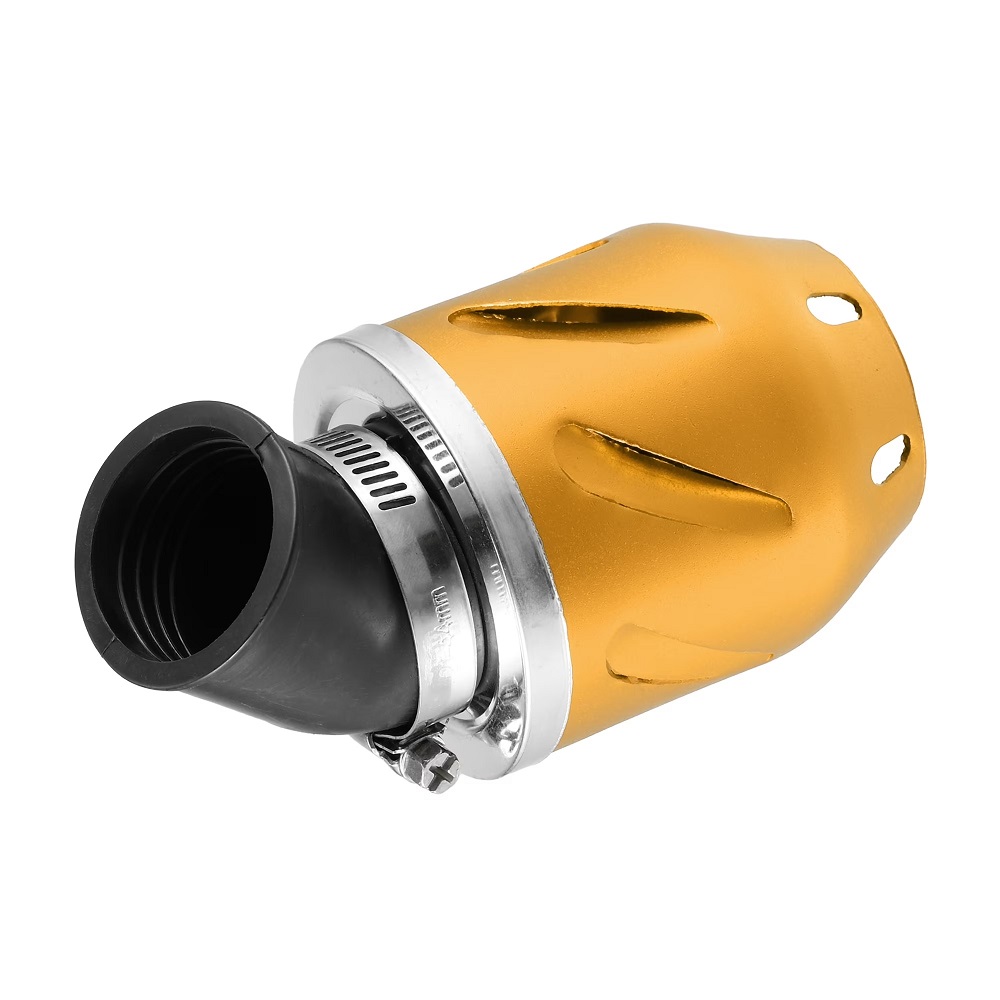
Leave a Reply